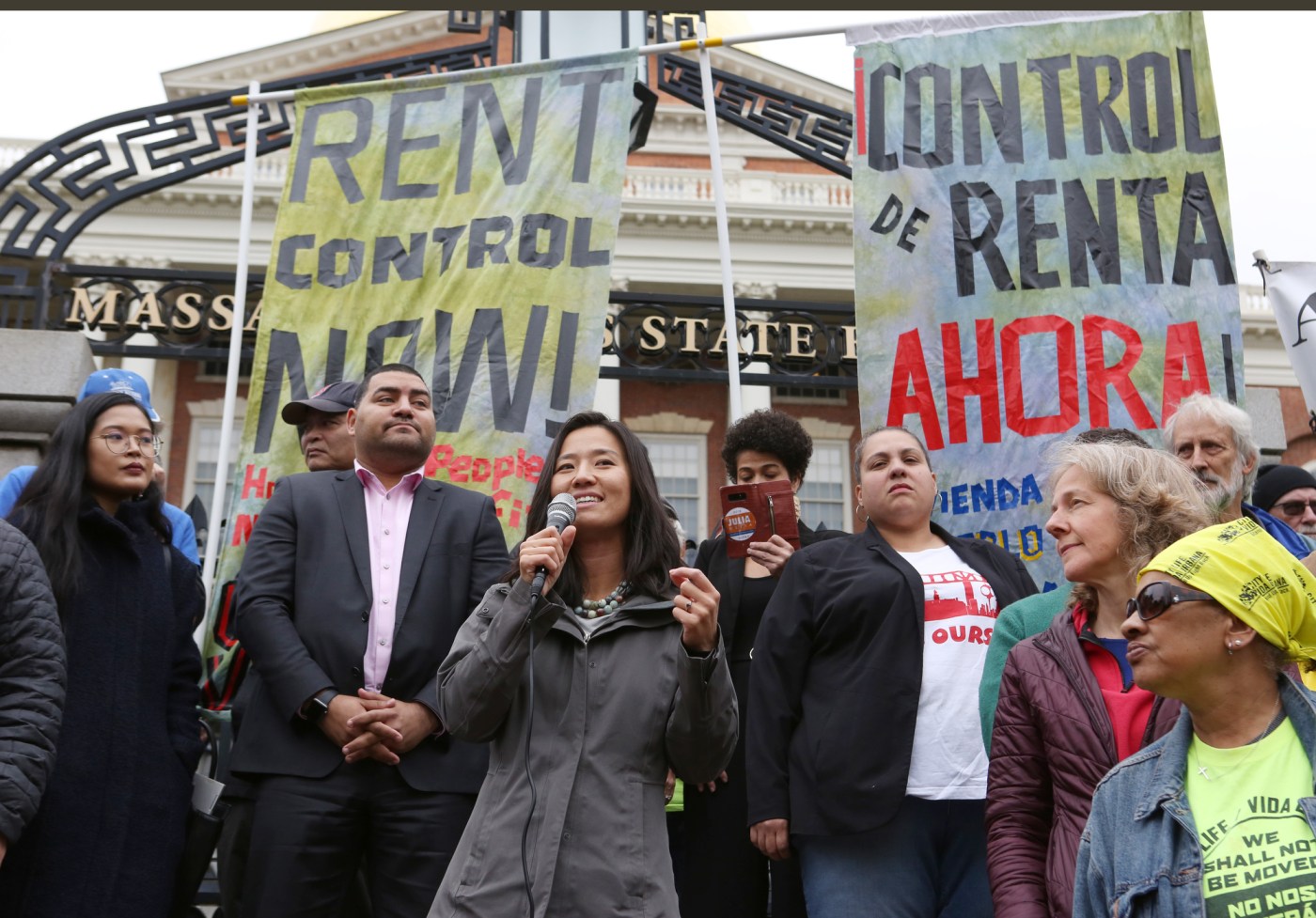
MassLandlords sues Boston, says city withheld public records to protect Mayor Wu, hide unlawful rent control lobbying
A trade association for Massachusetts landlords is in a legal battle with the City of Boston over public records it says the city withheld to hide unlawful lobbying from housing advocates that influenced the mayor’s stalled rent control plan.
Douglas Quattrochi, executive director of MassLandlords, Inc., which filed a lawsuit against the City of Boston in Suffolk Superior Court last year, alleges in an Aug. 7 affidavit that the city failed to produce 10 documents he believes to exist around the formation of the city’s Rent Stabilization Advisory Committee.
“I found the combined response to be primarily off-topic, missing documents I believe to exist, missing another document I know to exist, in bad faith designed to hide unlawful lobbying activities, developer interests, and donor influence,” Quattrochi, whose organization opposes rent control, wrote in the affidavit.
“I believe Boston’s delayed and incomplete responses are consistent with a desire to shield from scrutiny certain public officials, the mayor in particular, and the unregistered lobbyists who unlawfully advance their private interests at public expense,” he added.
A first hearing in the case on MassLandlords’ motion for the court to inspect the City of Boston’s email systems for the record Quattrochi said he knows to exist, as it pertains to an email on rent control he sent to Mayor Michelle Wu, is set for next Friday in Suffolk Superior Court.
If that document turns up, MassLandlords’ motion seeks subsequent action from the city to facilitate the trade group’s supervised access to inspect city information systems for other documents related to the records request.
The mayor’s office on Friday deferred comment to the city’s latest court filing on Oct. 4, “particularly where it states in the first paragraph that the city produced all the responsive records and the case is moot.”
The Rent Stabilization Advisory Committee’s proposal “formed the basis for a home rule bill that would establish a form of rent control in Boston,” which on Feb. 13, 2023, the mayor submitted to the City Council for filing with the Legislature, Quattrochi wrote.
The committee includes mayoral-appointed representation from tenant advocacy groups focused on rental relief and eviction protections, politically-connected developers, and unions and people without “obviously relevant expertise,” his affidavit states.
“The policy advanced by the RSAC was crafted without the input of landlord organizations,” Quattrochi wrote. “It strongly reflects developer interests. It favors the well-connected over the well-informed. It favors donors over non-donors. It rewards those who have conducted lobbying activities even where those activities have not been lawfully reported.
“The mayor has benefited politically from this corruption. The city’s response sustains the mayor’s corrupt purpose,” his court filing states.
Quattrochi’s affidavit cites records from the state Office of Campaign and Political Finance that “suggest the reason for appointment is undue influence.” Seventeen of the committee appointees were previously personal donors in Boston political races, with an average donation of $10,462 per appointee prior to Feb. 17, 2023, he wrote.
“In my professional opinion and with personal experience in Massachusetts, this is not representative of the average person affected by or involved with the housing crisis, who donates little or nothing,” Quattrochi wrote.
His affidavit also homes in on “unlawful” lobbying that he says was done by three housing groups with representation on the committee, City Life Vida Urbana, the Hyams Foundation, and the Boston Tenants Coalition — which Quattrochi asserts should have been revealed by the scope of his records request, leading him to believe the city’s incomplete response was “designed to hide unlawful activities.”
Under state law, the individuals appointed to the Rent Stabilization Advisory Committee would be “legislative or executive agents if as part of their normal activities as a compensated employee or contractor for any organization, they had contacted the city about rent control, which requires a state enabling act,” he wrote.
Quattrochi’s filing cites the organizations’ and their individual committee representatives’ failure to register as lobbyists with the Secretary of the Commonwealth, with attachments showing his blank search requests on the state website.
Related Articles
Mayor Wu looks to ink long-term PILOT tax payments from ‘Big 9’ institutions first
Boston City Council approves Michelle Wu’s revised bid to hike business taxes
Boston College refuses to pay PILOT cash as mayor’s tax split up for a vote
City Hall prepped for commercial market crash behind closed doors, while downplaying problem publicly, testimony reveals
Boston city councilors trade jabs in tax showdown ahead of Wednesday vote
In fact, he wrote, “City Life/Vida Urbana was a vocal grassroots lobbyist in state and Boston politics during the record request period. For example, a Sept. 1, 2021 Facebook post shows a group of City Life organized advocates standing outside the State House demanding eviction protections, a key component of the RSAC rent control proposal.”
Quattrochi and MassLandlords are registered lobbyists.
In an email to the Herald, Quattrochi stated, “If all the nonprofits who lobbied Boston and the state had to disclose their lobbying, they would either become ineligible for grants or would have to stop lobbying. The state would look very different.”
City Life, Hyams and Boston Tenants did not respond to a request for comment.
MassLandlords views rent control, as proposed by the committee and mayor, as a policy that would have “numerous harmful unintended consequences for residents of Boston and the Commonwealth more broadly,” Quattrochi wrote.
The mayor’s rent control legislation has stalled on Beacon Hill, and a campaign to place a rent control question on this year’s statewide ballot failed.

